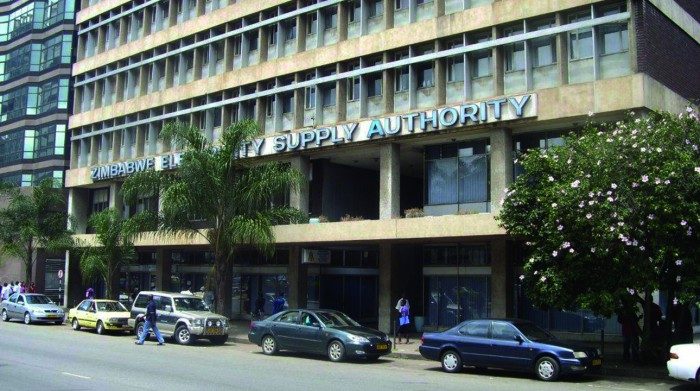


 SOME of the companies that had applied to sell prepaid electricity tokens to consumers have approached the Administrative Court contesting a decision taken by the State Procurement Board (SPB) to cancel the tender.
SOME of the companies that had applied to sell prepaid electricity tokens to consumers have approached the Administrative Court contesting a decision taken by the State Procurement Board (SPB) to cancel the tender.
This comes as Energy and Power Development Minister, Dzikamai Mavhaire (pictured blow), appointed Powertel Communications and its technical partner E-solutions to create distribution networks for the sale of Zimbabwe Electricity Transmission and Distribution Company (ZETDC̓s) prepaid electricity tokens without going to tender.
These two companies, which are believed to be struggling to provide a solution for the roll-out of the project, had also participated in the cancelled tender, ZETDC/HO/04/2013, and had been disqualified after adjudication.
Procurement experts said the move by Mavhaire to appoint Powertel and E-solutions was in violation of SPB rules, considering that the two companies had also submitted bids for the tender. They accused the Minister of interfering with the day to day running of the power utility instead of giving policy guidelines.
ZETDC has introduced an SMS prepaid meter recharge platform called Power Plus in partnership with CBZ Bank, NetOne and ZB Bank. There are, however, doubts as to whether the State enterprises would be able to conveniently provide the service considering the shambolic state of their finances.
In the court challenge brought before the Administrative Court, ZETDC, a wholly-owned subsidiary of ZESA Holdings, has been cited as the second respondent in the case. SPB, which is the first respondent in the case, cancelled the tender for the appointment of aggregators to provide third party ZETDC prepaid electricity unit in January this year, citing technical irregularities.
The tender, which attracted more than 40 companies, had been re-advertised in September last year after it was initially cancelled in August 2012. Four companies — Weph Commercial Agencies, Energy and Information Logistics, Aura Group and Comm Shop — want the decision of the SPB to be set aside and that the respondents be ordered to carry on with the adjudication of the tender.
Represented by a legal firm, Atherstone & Cook, the four companies last month made a Chamber application to the Administrative Court for condonation of late noting of an appeal and extension of time within which to note an appeal. The application against the SPB decision was done under case number P4/14 dated March 13, 2014. The condonation application letter comes after the application to appeal against the SPB decision was done after the expiry of the stipulated 20 days from the date of receiving the decision.
The development, which saw the SPB cancelling the tender, would be a huge inconvenience for the power utility and consumers. The cancellation of the tender did not go down well with the applicants who claim SPB erred in unilaterally terminating the tender on account of the existence of technical irregularities which were never explained and were never said to have been caused by the appellants.
The companies further claimed that in cancelling the tender, SPB failed to appreciate that it was contractually bound to execute its duties in terms of the tender documents and not cancel the tender without the consent of the bidders as a contractual relationship had been created. Bidders claimed that they had paid a non-refundable deposit of US$280 for local bidders and US$750 for foreign bidders including a certain amount categorised as tender fees.
The companies, which were being vetted on their ability to pay for the tokens in advance, claimed that the tender process ought to have been carried out to its logical conclusion. According to tender documents, successful aggregators would have been required to make an upfront payment of US$2 million and transact against the upfront payment made. There was also US$45 000 to be paid upfront to carry out conformance testing with the system supplier.
The aspiring aggregators were also required to have own software with the capacity to interface with other accounting software such as IPAY, which is currently being used by ZETDC as its Switching system. According to the tender documents, selected aggregators were supposed to enter into a five year contract with ZETDC, of which the contract would be subject for renewal based on the performance of the aggregators.
“…..The essence of the (court) application is to contest the action that was taken by yourself (SPB) in cancelling tender number ZETDC/H04/13 for the appointment of aggregators for the sale of ZETDC prepaid electricity units,” reads part of the letter from law firm Atherstone & Cook dated March 13, 2014.
The letter added: “Pending the resolution of the matter, it is important the status quo prevail. To this end, we seek your confirmation that until this matter is resolved, your organisation will not appoint any person as aggregators for the sale of ZETDC pre-paid electricity units.
“In the circumstances, our client will not have any alternative but to file an application out of the High Court for an order interdicting you from appointing any other person other than our clients or other tenderers who tendered in the said tender.”
The roll-out of the third party prepaid electricity vending system was expected to begin on February 28. Allegations emerged during the bidding process that companies earmarked to win the bid had been pre-determined by corrupt officials from both ZESA and the SPB. Such companies include prepaid meter supplier Finmark Industries, Revma and Powertel Communications.
More worrying was the involvement of Revma, a company that was also part of the adjudicators. The company had been awarded a contract by ZETDC in 2011 to install a new power billing system to which they installed their Itron 3E System. ZESA, to date, has managed to install an estimated 400 000 prepaid meters out of the 800 000 units that were supposed to have been installed by the end of last year.